Toward Kindness
Christina Liao (she/her/hers), Low Entropy Volunteer Writer Kindness is such a fickle thing – it’s hard to come by, but it’s easy to give. It’s important to be kind to others, especially during a global pandemic. A simple act of kindness can brighten someone’s day, maybe even week. Giving somebody a compliment or telling […]
The Mental Health Revolution Might Be Televised
And now, back to our regularly scheduled mental health conversations: Low Entropy Volunteer Writer Christina Liao identifies a trend in television shows exploring issues like self-love and loss. In today’s media, topics such as self-worth, self-love and grief are discussed in a much more prevalent way, and externalities of these discussions tend to be […]
I Made a Mistake
Admitting your mistakes can be a very difficult thing. It’s even harder to turn those moments into character-building opportunities. Low Entropy Volunteer Writer Tricia Keith shows us how both can be done. In a world that seems ready to tell me that I have made an error, that I am wrong, that I am mistaken […]
Over It
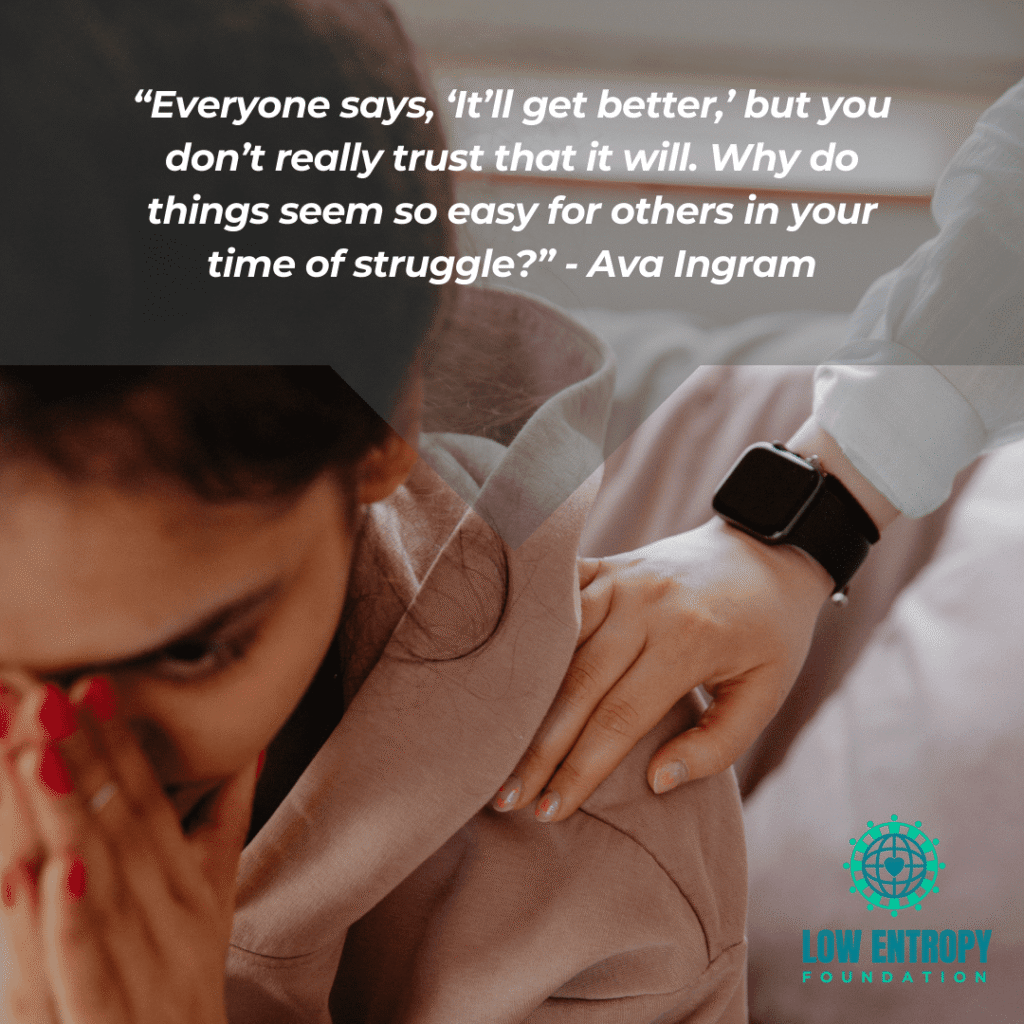
They say that breaking up is hard to do. Ava Ingram knows that it’s true. Ava got through it though, and the Low Entropy volunteer writer shares her best practices on sorting out the aftermath. You’ve done your best, and given your all. You’ve had enough of the emotional roller coaster ride and gaslighting […]
Empowerment: From the Path of Least Resistance to the Path of Most Resilience.
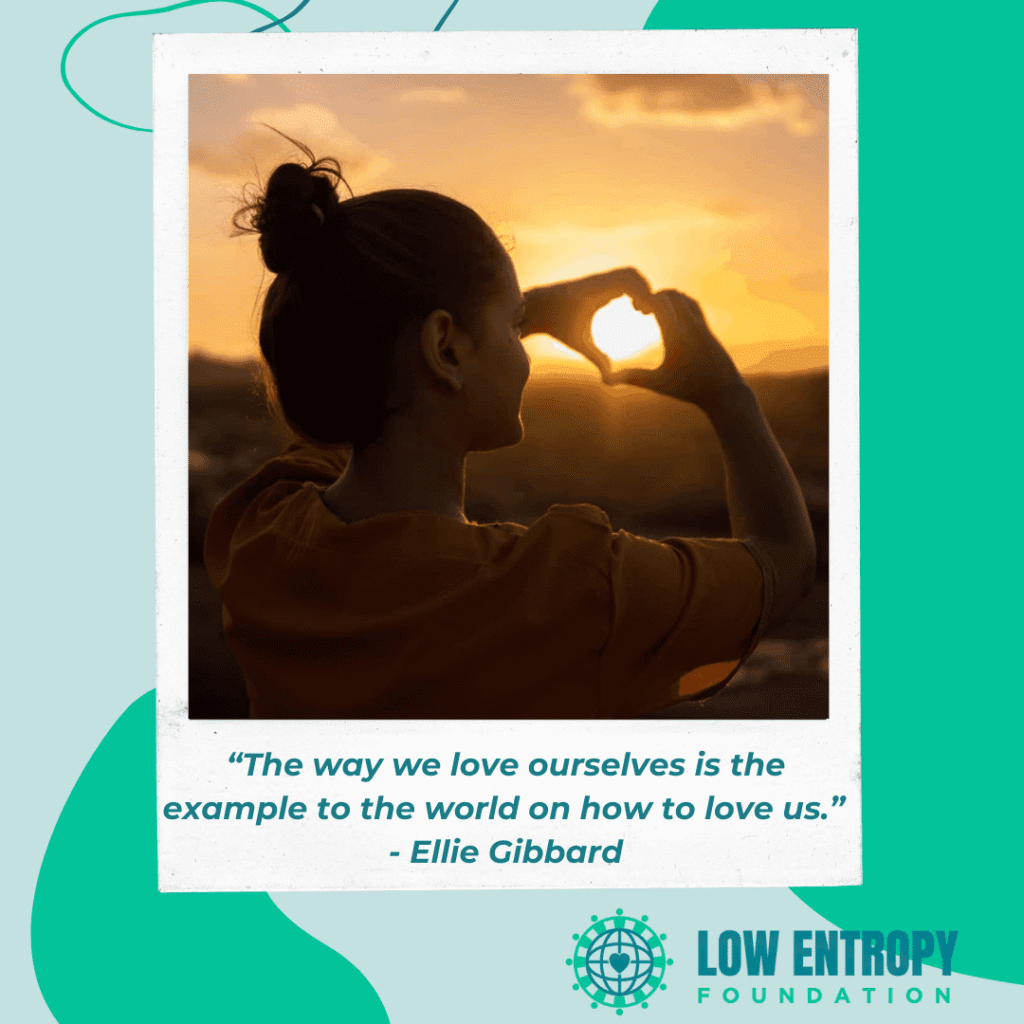
Low Entropy Volunteer Writer Ellie Gibbard walks us through her thoughts on empowerment and resilience, stopping by concepts of self-love, growth and confidence along the way. What is empowerment? Feeling empowered comes from finding the ability to be the best and healthiest version of ourselves. It comes from knowledge, confidence and resilience. To […]
Transformation
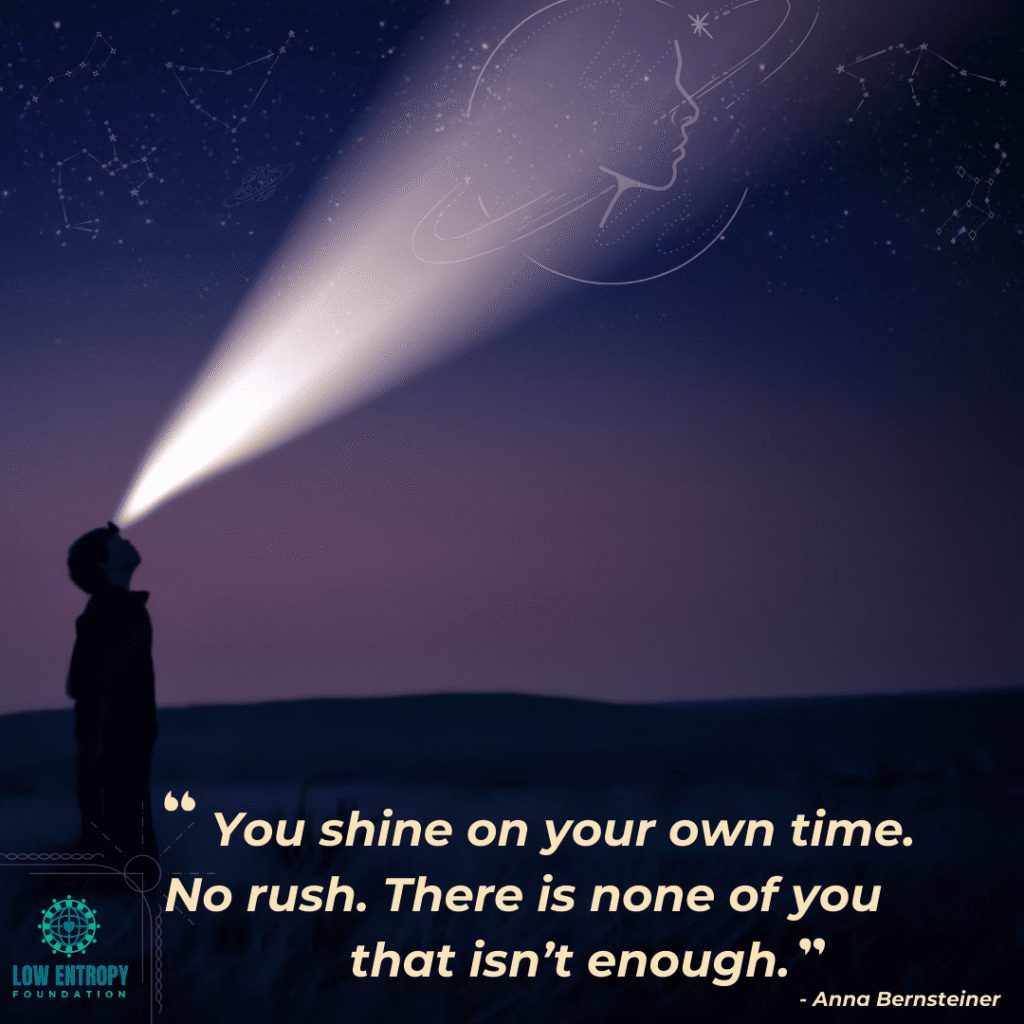
by Anna Bernsteiner You grow like a sunflower reaching up to the sun in mid-May. There is no other way, but forward. Slowly, unnoticeable at first. You pierce through the dirt. Air, Sunshine, life. Up you go with a goal in mind. Shaking off all the darkness and doubts. Grow grow grow that’s all […]
Live Aloha
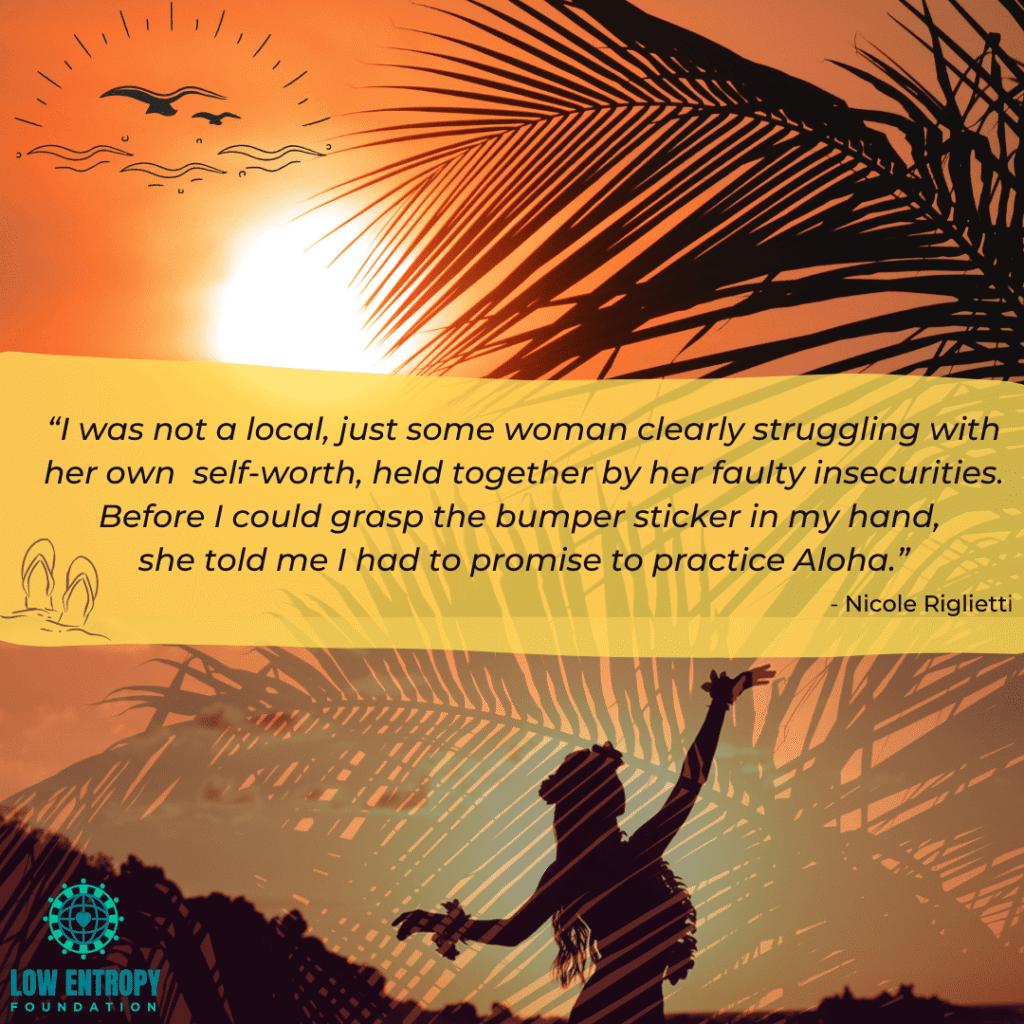
Low Entropy Volunteer Writer Nicole Riglietti takes us on a transformative voyage, escaping from despair and self-contempt to Hawaii and the curative love of the Aloha Spirit. With the carefully constructed confines of society, it is amazingly easy to feel lost in the day to day, in the moments and minutes of a grim […]
Love Yourself Like You Love Yourself
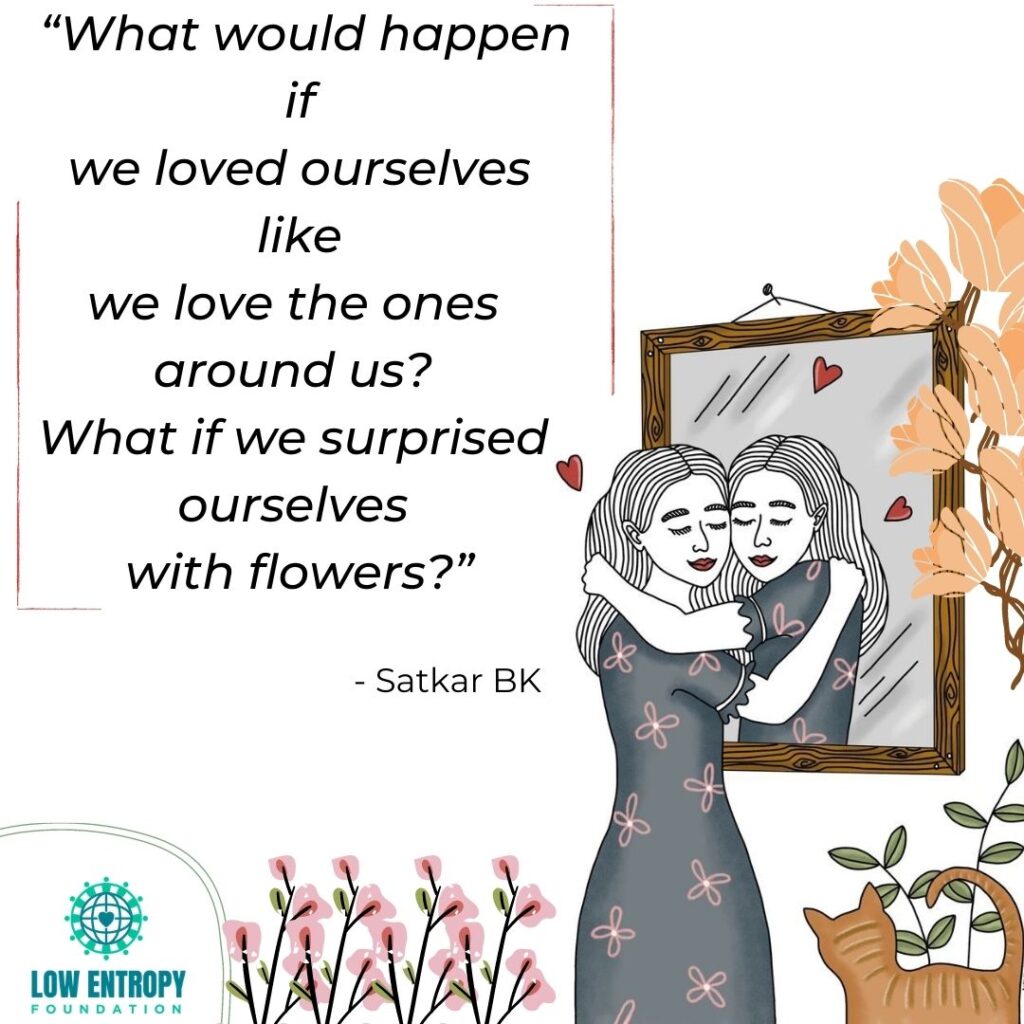
During this time of year, the world reverberates with proclamations of love for families, friends and partners, but Low Entropy Volunteer Writer Satkar BK reminds us that we also need to love ourselves with that same energy. Every February, I can’t help but see all the love in the air. Whether it be watching […]
